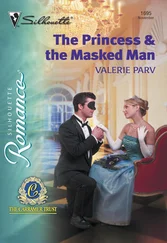At Richmond Palace, by the River Thames a little to the west of London, the atmosphere was fraught. Queen Anne Boleyn was the cause. Her high-pitched voice and shrill laughter had been heard less than usual that day, but she gave the impression of being like a wound crossbow, which might at any moment release a bolt, and who knew which one of them would be the target?
King Henry, who was planning improvements to the private rooms at Greenwich Palace, miles downstream to the east, was engaged all day with architects and did not see the queen until he joined her for supper. Most of the conversation then concerned the choice of wall hangings for the refurbished rooms and Queen Anne took part amiably enough though those who knew her well sensed that her apparent good humour had much in common with a set of gilded bars on a cage containing an irascible tigress.
When the meal was over, in her most gracious and persuasive tones Anne invited Henry to join a game of cards with her and some other friends.
As the darkness closed in, the group settled in a snug, tapestried chamber, lit by firelight, candles and lamps, scented by sweet lamp-oils, and the rosemary in the rushes on the floor.
There, in the flickering half-light, as the cards were dealt, Anne employed them to send a secret message to Henry.
It was one of their private games, this exchange of signals that only they could read. To hold the cards in one’s right hand and pensively flick the leftmost card with the other hand was to say, I love you . For him to run a forefinger slowly and sensually across the edge of the fan of cards was to say, I desire you. I will come tonight . For her to do the same was an invitation. Please come tonight. I will be awake and waiting . For either of them to flick the face of each card in turn with the nail of a forefinger was to reply, You will be welcome or I will come .
In the course of the evening’s play she fingered the edge of her cards four times, lingeringly, invitingly. But at no point did the king’s small greenish-grey eyes meet her dark ones; at no point did the square bearded face above the slashed velvet doublet show any awareness of her except as a fellow player in the game. Nor did his thick forefinger ever flick the face of any card at all.
What am I to do? I have borne him one daughter and lost one male infant. He is turning away from me. He had a mistress last year, I know he did, and she wasn’t the first. I will only win him back if I give him a son, and how can I give him a son if he will not make love to me? Or if he can’t?
The previous night Henry had failed her. She had used every art she could think of to help him, without success. Now it seemed he was refusing even to try. Perhaps he was ashamed. But she was afraid, because she knew he would blame her both for his failure and her own. Her dreadful failure, in his eyes, to produce a prince to follow him.
He had blamed her openly last night. He had said, “If only you were a real woman. If only you could have a healthy child every year, and half of them sons, like other women! If you were a real woman, I’d be a real man!”
“I am a real woman!” she had shouted. “What else could I be?”
“A witch,” said King Henry nastily. “Or a whore.”
Oh, God, make him come to me tonight and make him able. Let us make a sturdy son. Because if we don’t …
If we don’t make a son, I shall be blamed and blamed and blamed. I’ve given him a sweet red-haired Tudor daughter, but what use is a daughter? Elizabeth can’t be his heir, any more than her sister Mary can. He told his first wife, Catherine of Aragon, that for a king to have only daughters was the same as being childless altogether. But how can a woman choose whether her babies are boys or girls? Unjust, unjust! I could kill him! Or I could kill God, for denying me this one thing that I need, that he needs, so badly .
Henry was thinking, Candlelight doesn’t suit her. It suits most women, but it makes her look weird. Like a sorceress. Maybe she is a sorceress. I wanted her so much. I’ve turned the church upside down for her, broken away from the Pope, changed the ritual, started closing down monasteries…not that the monks don’t deserve it, fat, luxurious layabouts that most of them are. But how did she make me want her to that point, just the same? Was it witchery? If she doesn’t stop fingering those cards, I’ll get up and walk out of this room. We need another signal. One that says No, stop it .
I’m getting tired of her, and my other queen is still alive. Two unwanted queens and no son. Was ever a man so accursed?
CHAPTER FOUR
“ T here’s no room here for idle hands,” Katherine said to Sybil a matter of minutes after their arrival in Lynmouth.
Sybil had made the journey on a pillion behind a groom and they had travelled slowly, but she was tired. By the time they were on the steep track down into the little harbour village of Lynmouth at the base of its towering cliffs, she was longing for a quiet bedchamber with a cup of wine to restore her.
At the door of the house, just before the foot of the hill, they dismounted and servants came out to deal with panniers and horses. The main door opened straight into a big panelled parlour. Sybil had seen it before. When her parents were alive, the Allerbrooks had once or twice attended Christmas revels at the Lanyons’ home. Now, however, she paused uncertainly, wondering where to go, until Katherine tapped her arm and said, “Follow me.”
The house was old and creaky and tall. Katherine led the way up a steep and somewhat rickety staircase to an attic room. There were no luxuries here, no hearth or bed-hangings. There was a clothespress, a window seat that lifted to reveal a chest below, one small shelf with a candlestick on it and a plain truckle bed with no bedding.
“Your things will be fetched up presently and I’ll have the bed made up,” Katherine said. “For now, just take off your cloak and hat and leave them here, and then come down to the dining parlour. Do you remember where it is?”
No rest, then. Not even a wash! She went down to the dining parlour, which led out of the main parlour, and found that food was being set out. She was not, however, to eat anything yet.
“You can serve us while we eat and leave the other maids free to get on with other things,” Katherine said. Sybil stared at her and that was the moment when Katherine said, “There’s no room here for idle hands. Everyone’s always busy,” she added. “You can eat when we’ve finished.”
She was presented to the servants as Mistress Sybil Waters, a young widow, a relative, but without means. “We’ve never known anyone called Waters, so as a name it won’t cause confusion,” Owen said.
Sybil was willing enough to acquiesce, but the groom who had accompanied the party to Allerbrook certainly knew the truth, and she had no doubt that he would soon tell the three maids and the manservant Perkins all about it. If this was a port in a storm, it also promised to be a port in a hostile country.
The days that followed were harsh. Katherine, however well-bred in society, was less fastidious in private, where she raised her voice whenever she pleased. Only Owen was exempt. His wife shouted at everyone else and handed out frequent slaps, and Sybil was sure that she received more than her fair share. At Allerbrook such things were rare. At Allerbrook, too, people often smiled. If only, in Lynmouth, someone now and then would smile at her. But no one ever did and on top of that, there was the work.
Читать дальше












